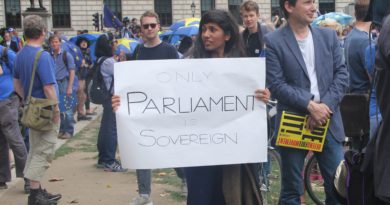Finding a cure for young people’s allergy to vote
Austria and the Czech Republic go to the polls this month (15 and 20-21 October respectively) with the spectre of a low turnout among young people. It is a widespread trend across Europe. A study carried out in Germany, France and the United Kingdom shows that younger generations are less likely to vote than the older ones, but that doesn’t mean they are disengaged. So how to encourage them to participate in elections?
Voting at 16 was introduced in 2008 in Austria to increase political interest among younger voters. As a result, Markus Wagner and Eva Zeglovits of the London School of Economics (LSE) note that “in some regional elections 16 and 17 year olds’ turnout exceeds turnout of older first time voters by 8 to 10 percentage points.” But interest in national elections remains relatively low and there are little signs that parties adapt their programmes considering a younger electorate. If anything, however, voting at a younger age creates the opportunity to discuss civil rights in schools.
This is what happened in the Czech Republic, where 40,068 students from 281 schools participated this week in a simulated election organised by People in Need, a charity in Prague. Perhaps reflecting the need of new forms of expression, the winner of the simulation was the Pirate Party, a movement focusing on civil liberties, shared information, technology and direct democracy. At the same time, The Prague Monitor and the Czech News Agency (ČTK) report that some mainstream parties, like the Social Democrats (CSSD), the senior opposition Communists (KSCM) and the Christian Democrats (KDU-CSL) would not make it into parliament based on the results of this vote.
The different attitude to votes and the friction with older generations emerged clearly in the United Kingdom with the Brexit vote. Between 1992 and 2005, the turnout of 18-24 years old in general elections dropped from 66% to 38%, according to a research by Ipsos. In 2005, it was as low as 7% of all votes cast. And while a larger proportion (60%) registered to take part in the EU referendum, the voice of youth was less prominent than that of older generations. But Brexit will have a huge impact on young people’s lives, so new initiatives are now put in place to give them a say.
Which 4 or 5 things should Britain prioritise?
18-24 yr olds versus pensioners
Good luck Britain pic.twitter.com/qT8BXpwNGo
— Matthew Goodwin (@GoodwinMJ) October 4, 2017
On the first anniversary of the EU referendum, the LSE’s European Institute launched Generation Brexit. The project aims to develop a millennial vision for the future relationship between the UK and the EU by asking those under 35 from across both the UK and the rest of Europe what they want from Brexit.
.@GenBrexit has officially launched in six languages. This innovative online platform is seeking opinion from young people from across the EU. Head to https://t.co/R1CCsEvpYm to have YOUR say today #genbrexit
— Undivided (@weareundivided) October 4, 2017
The debate takes place online. Every week, the blog posts challenges – “big questions that need to be answered” – that young people can contribute to solve. For example, a post on “Breaking up/Paying up” makes an analogy between the current discussion on the financial settlement of the UK withdrawal and housemates splitting items they had shared living together. There are also posts targeting specific countries. For example, a question in the Italian section called for suggestions on alternatives to freedom of movement. In the hope that the voice of young people will be heard, the policy proposals will be sent to parliaments in Brussels and Westminster.
A report exploring young people attitude to Brexit will be launched by the LSE and an all-party parliamentary group on October 18th. “Being young in Brexit Britain” will be the object of a debate at University College London on November 2nd.
Claudia Delpero and Silvia Martelli © all rights reserved.
Photo © European Union, 2017. Source: EC – Audiovisual Service. Photo: Nikolay Doychinov.




